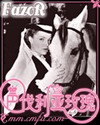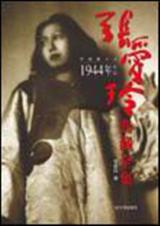夜莺与玫瑰-第15部分
按键盘上方向键 ← 或 → 可快速上下翻页,按键盘上的 Enter 键可回到本书目录页,按键盘上方向键 ↑ 可回到本页顶部!
————未阅读完?加入书签已便下次继续阅读!
true friend he prefers it, for he knows that then he is doing good。’
“ ‘I am very sorry,’ said little Hans, rubbing his eyes and pulling off his night…cap, ‘but I was so tired that I thought I would lie in bed for a little time, and listen to the birds singing。 Do you know that I always work better after hearing the birds sing?’
“ ‘Well, I am glad of that,’ said the Miller, clapping little Hans on the back, ‘for I want you to e up to the mill as soon as you are dressed, and mend my barn…roof for me。’
“Poor little Hans was very anxious to go and work in his garden, for his flowers had not been watered for two days, but he did not like to refuse the Miller, as he was such a good friend to him。
“ ‘Do you think it would be unfriendly of me if I said I was busy?’ he inquired in a shy and timid voice。
“ ‘Well, really,’ answered the Miller, ‘I do not think it is much to ask of you, considering that I am going to give you my wheelbarrow; but of course if you refuse I will go and do it myself。’
“ ‘Oh! on no account,’ cried little Hans and he jumped out of bed, and dressed himself, and went up to the barn。
“He worked there all day long, till sunset, and at sunset the Miller came to see how he was getting on。
“ ‘Have you mended the hole in the roof yet, little Hans?’ cried the Miller in a cheery voice。
“ ‘It is quite mended,’ answered little Hans, ing down the ladder。
“ ‘Ah!’ said the Miller, ‘there is no work so delightful as the work one does for others。’
“ ‘It is certainly a great privilege to hear you talk,’ answered little Hans, sitting down, and wiping his forehead, ‘a very great privilege。 But I am afraid I shall never have such beautiful ideas as you have。’
“ ‘Oh! they will e to you,’ said the Miller, ‘but you must take more pains。 At present you have only the practice of friendship; some day you will have the theory also。’
“ ‘Do you really think I shall?’ asked little Hans。
“ ‘I have no doubt of it,’ answered the Miller, ‘but now that you have mended the roof, you had better go home and rest, for I want you to drive my sheep to the mountain to…morrow。’
“Poor little Hans was afraid to say anything to this, and early the next morning the Miller brought his sheep round to the cottage, and Hans started off with them to the mountain。 It took him the whole day to get there and back; and when he returned he was so tired that he went off to sleep in his chair, and did not wake up till it was broad daylight。
“ ‘What a delightful time I shall have in my garden,’ he said, and he went to work at once。
“But somehow he was never able to look after his flowers at all, for his friend the Miller was always ing round and sending him off on long errands, or getting him to help at the mill。 Little Hans was very much distressed at times, as he was afraid his flowers would think he had forgotten them, but he consoled himself by the reflection that the Miller was his best friend。 ‘Besides,’ he used to say, ‘he is going to give me his wheelbarrow, and that is an act of pure generosity。’
“So little Hans worked away for the Miller, and the Miller said all kinds of beautiful things about friendship, which Hans took down in a note…book, and used to read over at night, for he was a very good scholar。
“Now it happened that one evening little Hans was sitting by his fireside when a loud rap came at the door。 It was a very wild night, and the wind was blowing and roaring round the house so terribly that at first he thought it was merely the storm。 But a second rap came, and then a third, louder than any of the others。
“ ‘It is some poor traveller,’ said little Hans to himself, and he ran to the door。
“There stood the Miller with a lantern in one hand and a big stick in the other。
“ ‘Dear little Hans,’ cried the Miller, ‘I am in great trouble。 My little boy has fallen off a ladder and hurt himself, and I am going for the Doctor。 But he lives so far away, and it is such a bad night, that it has just occurred to me that it would be much better if you went instead of me。 You know I am going to give you my wheelbarrow, and so, it is only fair that you should do something for me in return。’
“ ‘Certainly,’ cried little Hans, ‘I take it quite as a pliment your ing to me, and I will start off at once。 But you must lend me your lantern, as the night is so dark that I am afraid I might fall into the ditch。’
“ ‘I am very sorry,’ answered the Miller, ‘but it is my new lantern, and it would be a great loss to me if anything happened to it。’
“ ‘Well, never mind, I will do without it,’ cried little Hans, and he took down his great fur coat, and his warm scarlet cap, and tied a muffler round his throat, and started off。
“What a dreadful storm it was! The night was so black that little Hans could hardly see, and the wind was so strong that he could scarcely stand。 However, he was very courageous, and after he had been walking about three hours, he arrived at the Doctor’s house, and knocked at the door。
“ ‘Who is there?’ cried the Doctor, putting his head out of his bedroom window。
“ ‘Little Hans, Doctor。’
“ ‘What do you want, little Hans?’
“ ‘The Miller’s son has fallen from a ladder, and has hurt himself, and the Miller wants you to e at once。’
“ ‘All right!’ said the Doctor; and he ordered his horse, and his big boots, and his lantern, and came downstairs, and rode off in the direction of the Miller’s house, little Hans trudging behind him。
“But the storm grew worse and worse, and the rain fell in torrents, and little Hans could not see where he was going, or keep up with the horse。 At last he lost his way, and wandered off on the moor, which was a very dangerous place, as it was full of deep holes, and there poor little Hans was drowned。 His body was found the next day by some goatherds, floating in a great pool of water, and was brought back by them to the cottage。
“Everybody went to little Hans’ funeral, as he was so popular, and the Miller was the chief mourner。
“ ‘As I was his best friend,’ said the Miller, ‘it is only fair that I should have the best place’; so he walked at the head of the procession in a long black cloak, and every now and then he wiped his eyes with a big pocket…handkerchief。
“ ‘Little Hans is certainly a great loss to every one,’ said the Blacksmith, when the funeral was over, and they were all seated fortably in the inn, drinking spiced wine and eating sweet cakes。
“ ‘A great loss to me at any rate,’ answered the Miller; ‘why, I had as good as given him my wheelbarrow, and now I really don’t know what to do with it。 It is very much in my way at home, and it is in such bad repair that I could not get anything for it if I sold it。 I will certainly take care not to give away anything again。 One always suffers for being generous。’ ”
“Well?” said the Water…rat, after a long pause。
“Well, that is the end,” said the Lin。
“But what became of the Miller?” asked the Water…rat。
“Oh! I really don’t know,” replied the Lin; “and I am sure that I don’t care。”
“It is quite evident then that you have no sympathy in your nature,” said the Water…rat。
“I am afraid you don’t quite see the moral of the story,” remarked the Lin。
“The what?” screamed the Water…rat。
“The moral。”
“Do you mean to say that the story has a moral?”
“Certainly,” said the Lin。
“Well, really,” said the Water…rat, in a very angry manner, “I think you should have told me that before you began。 If you had done so, I certainly would not have listened to you; in fact, I should have said ‘Pooh,’ like the critic。 However, I can say it now;” so he shouted out “Pooh” at the top of his voice, gave a whisk with his tail, and went back into his hole。
“And how do you like the Water…rat?” asked the Duck, who came paddling up some minutes afterwards。 “He has a great many good points, but for my own part I have a mother’s feelings, and I can never look at a confirmed bachelor without the tears ing into my eyes。”
“I am rather afraid that I have annoyed him,” answered the Lin。 “The fact is, that I told him a story with a moral。”
“Ah! that is always a very dangerous thing to do,” said the Duck。
And I quite agree with her。
★、The Remarkable RocketThe King’s son was going to be married, so there were general rejoicings。 He had waited a whole year for his bride, and at last she had arrived。 She was a Russian Princess, and had driven all the way from Finland in a sledge drawn by six reindeer。 The sledge was shaped like a great golden swan, and between the swan’s wings lay the little Princess herself。 Her long ermine cloak reached right down to her feet, on her head was a tiny cap of silver tissue, and she was as pale as the Snow Palace in which she had always lived。 So pale was she that as she drove through the streets all the people wondered。 “She is like a white rose!” they cried, and they threw down flowers on her from the balconies。
At the gate of the Castle the Prince was waiting to receive her。 He had dreamy violet eyes, and his hair was like fine gold。 When he saw her he sank upon one knee, and kissed her hand。
“Your picture was beautiful,” he murmured, “but you are more beautiful than your picture;” and the little Princess blushed。
“She was like a white rose before,” said a young Page to his neighbour, “but she is like a red rose now;” and the whole Court was delighted。
For the next three days everybody went about saying, “White rose, Red rose, Red rose, White rose;” and the King gave orders that the Page’s salary was to be doubled。 As he received no salary at all this was not of much use to him, but it was considered a great honour, and was duly published in the Court Gazette。
When the three days were over the marriage was celebrated。 It was a magnificent ceremony, and the bride and bridegroom walked hand in hand under a canopy of purple velvet embroidered with little pearls。 Then there was a State Banquet, which lasted for five hours。 The Prince and Princess sat at the top of the Great Hall and drank out of a cup of clear cry






